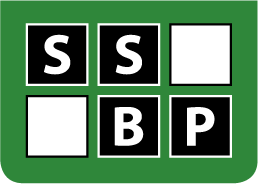Presentation 21 – Dr Jeanne Wolstencroft
SSBP Virtual Symposium 2023
The Leclezio- de Vries Lecture:
Autism Picture Tool: Children and Young People’s Views on Consent
Presenting Author : Dr Jeanne Wolstencroft
Abstract
Autism Picture Tool: Children and Young People’s Views on Consent
Wolstencroft J.1, Beddall N.2, Leyden D.2, Heys M.1, Skuse D.1, GOSH YPAG2
1 UCL BRC Great Ormond Street Institute of Child Health, UK
2 Great Ormond Street Hospital Young Persons’ Advisory Group for Research, UK
Background: Many UK NHS autism assessment services have long waiting lists. Tools that help clinicians triage children at risk, to reduce those waiting times, are urgently needed. Our project developed an online autism screening tool, for use with children 4-11 years of age. The Autism Picture Questionnaire (APQ) was designed for online application by clinicians, for use with families from ethnic minorities, where English is not the first language, or low literacy. The task presents parents with photographs of children from diverse ethnic backgrounds, some have autism, others not, and illustrate key autism traits (e.g., lack of eye contact, stimming).
Methods: Obtaining informed consent to photograph children <16years was complex. We conducted co-production PPI focus groups with children from the Great Ormond Street Hospital Young Person Advisory Group (GOSH-YPAG).
Results: GOSH YPAG involvement proved valuable, informing both the design procedure and the acceptability of the APQ: (1) Benefits: The project was regarded as important, and the use of pictures facilitated accessibility and engagement. (2) Stigma: YPAG recommended the APQ contained a statement that it illustrates both autistic and non-autistic children. (3) Informed consent: the children illustrated were too young to consent. There were mixed views on whether they should be recontacted for consent when age 16. (4) Autism: YPAG recommended we devise a simple account of autism that could be given to affected children; we wrote the ‘Autism Explainer Document’ in collaboration with autistic children and their parents from the Autistica Charity Research Insight Group.
Conclusion: Co-production with children and young people facilitates the production of ethical research study materials and procedures. Our experience with children’s focus groups led to the development of a unique psycho-educational leaflet and to an understanding of appropriate consent procedures for a novel autism assessment tool.
Keywords: Autism, co-production, young people, PPI, participation
Discussion Section
Use the comment box below to post questions for the author, and to discuss this presentation.
Note:
All comments are public, and comments may be moderated.
2024 SSBP Conference
Membership
Information
Contact
The Society for the Study of Behavioural Phenotypes (SSBP)
The Society for the Study of Behavioural Phenotypes (SSBP) is an international, interdisciplinary research society for studying the development, learning and behaviours of individuals with genetic disorders and ways of helping to improve lives. The society is registered as a charity in the UK (No. 1013849) and was set up in 1987.
Copyright 2024 © | The Society for the Study of Behavioural Phenotypes (SSBP)
